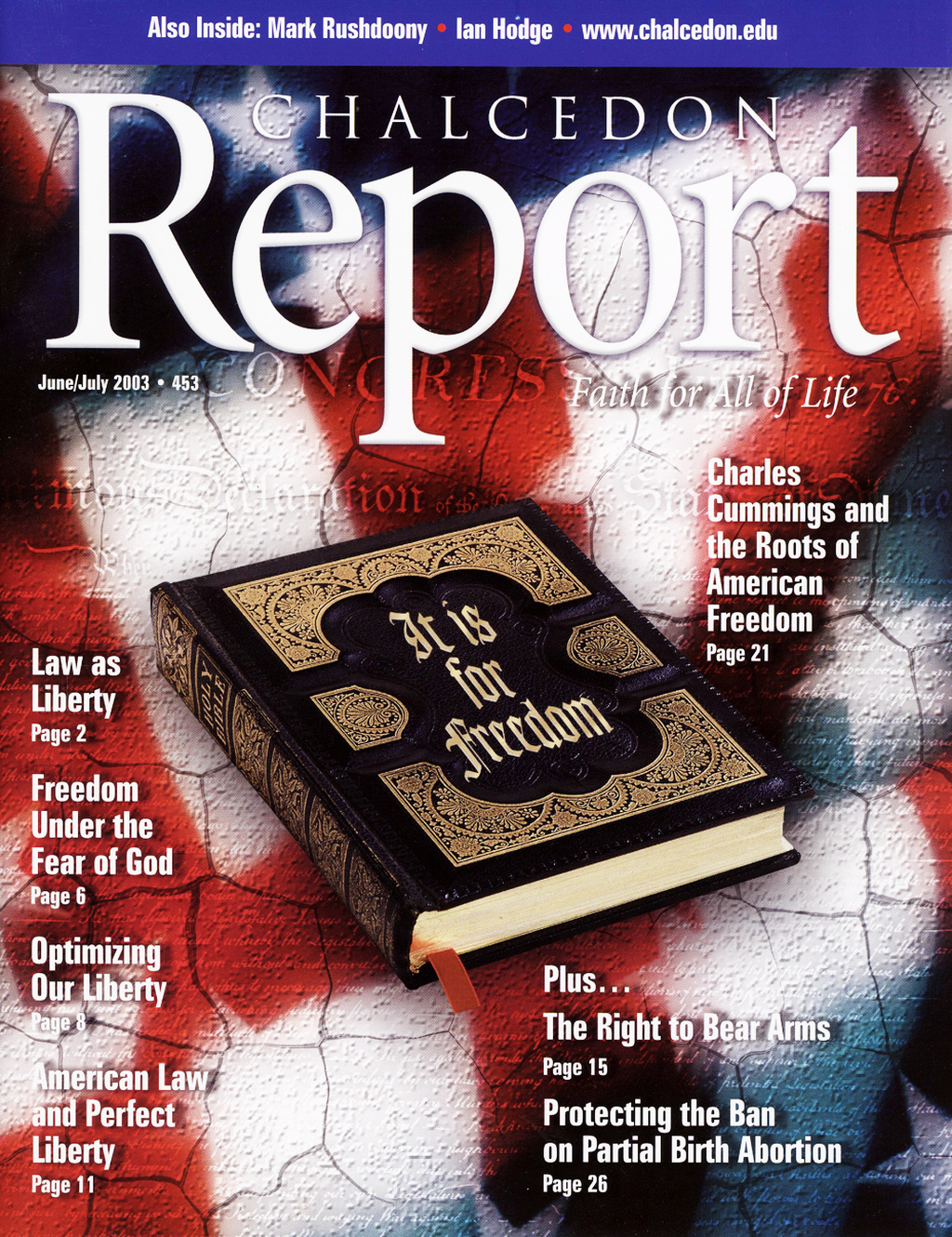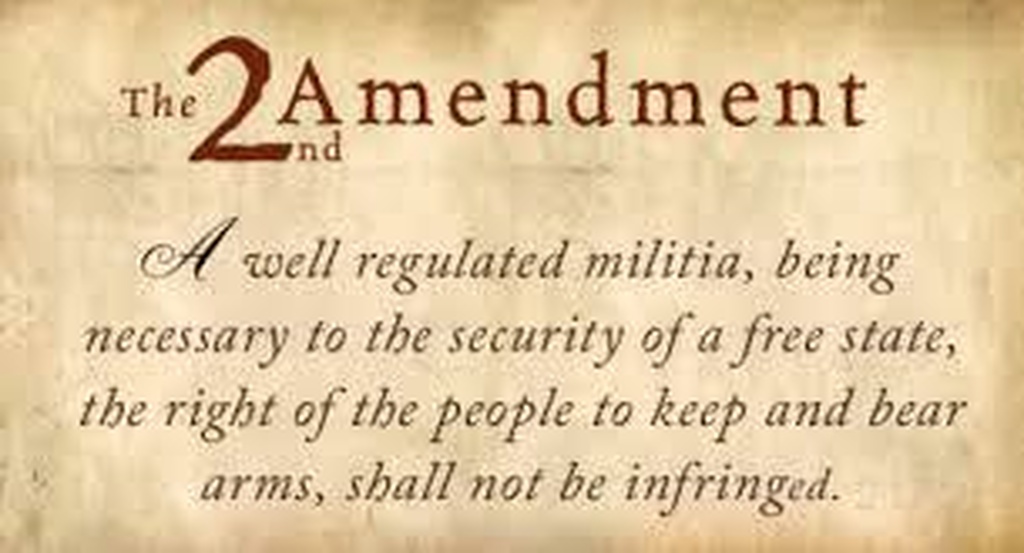
Magazine Issue
June/July 2003 Articles:
Law as Liberty

- R. J. Rushdoony
God's Law Is Our Freedom

- Mark R. Rushdoony
Freedom Under The Fear of God
- John Stoos
Maintaining, Increasing, and Optimizing Our Liberty
- Samuel L. Blumenfeld
American Law and Perfect Liberty
- Herbert W. Titus
The Hills Are Alive with the Call for Freedom
- Ian Hodge

True Violence and the Right to Keep and Bear Arms
- Curt Lovelace
Freedom, Slavery, and America's Founding
- Joseph Farinaccio
Crisis and the State
- Timothy D. Terrell
Charles Cummings and the Roots of American Freedom
- Roger Schultz
"For Altar & Home"
- Rick Williams
Onward Christian Soldiers: Protecting the Ban on Partial Birth Abortion
- Warren Kelley